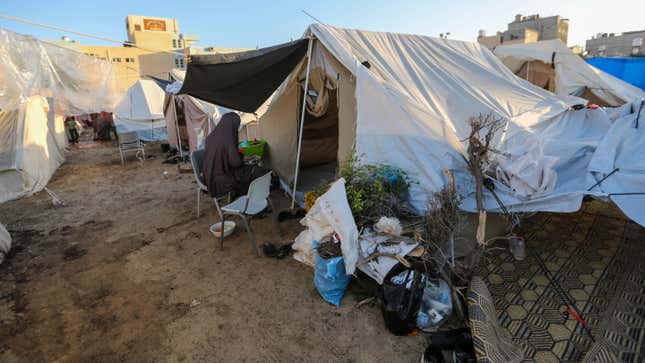Women and Girls in Gaza Are Suffering Through Their Periods Without Water, Medicine, Pads
One hospital worker said she’s encountering “numerous instances of fever directly linked to vaginal yeast infections" due to the absence of feminine products.


In an Instagram reel shared on Wednesday, Bisan, an independent journalist in Gaza who partnered with NO2TA the Feminist Lab, shared the harrowing everyday stories of women and girls as they menstruate under bombardment. Many are suffering through their periods without access to the basic hygiene products that are essential to prevent severe infection and disease.
Per an English translation Bisan provides in the reel, one hospital worker says that in her maternity ward, “a lot of women are urgently requesting pads” but there are none, “adding a new crisis to the existing challenges and restrictions caused by the Israeli occupation.” One young woman Bisan interviewed said that many people who are on their periods are forced to use scraps of cloth in the absence of pads or tampons. And, due to the lack of clean water under Israel’s blockade, they aren’t able to wash these cloths, which creates a higher risk of infection and a greater risk of cervical cancer.
Another hospital worker told Bisan that “each day” she encounters “numerous instances of fever directly linked to vaginal yeast infections, arising from inadequate hygiene and the absence of feminine products.” Sanitary pads and other menstrual products are “nowhere to be found,” she said—“even in pharmacies they’re not available.”
-

-

-

-

-

-

-

-

-

-

-

-

-

-

-

-

-

-

-

-

-

-

-

-

-

-

-

-

-

-

-

-

-

-

-

-

-

-

-

-









































